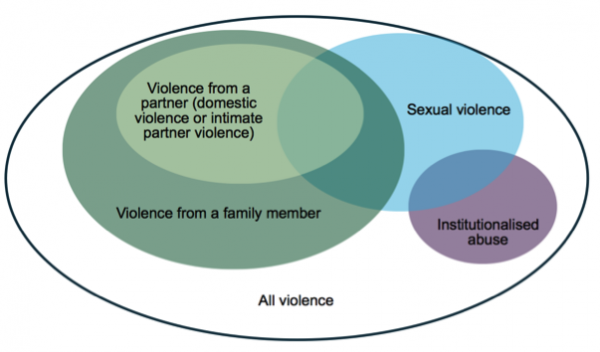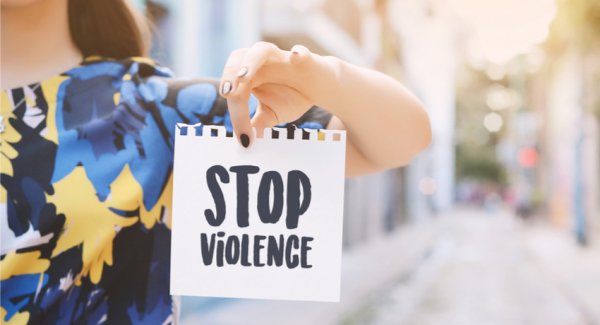A ‘crisis’ of masculinity
In the wake of the #MeToo movement, the recent public focus around the Western world on predatory, controlling, violent and sometimes lethal behaviour of men to women has reached a new level. This focus is often underpinned by a claim that such behaviour represents only a newly exposed example of something all women have experienced at some time, and which is normalised and systemic in society. For many it is a longstanding characteristic of patriarchy.
How can we explain these ‘incomprehensible’ actions of men beyond describing the perpetrators as ‘mentally ill’?
Responding to a recent series of family homicides in Western Australia, Premier Mark McGowan described the “domestic violence crisis” as “incomprehensible”. How can we explain these ‘incomprehensible’ actions of men, who are often referred to by their neighbours as quiet, normal members of the community, who harm or sometimes kill women (and their children), beyond describing the perpetrators as ‘mentally ill’? How do we make sense of sexual violence such as Harvey Weinstein’s alleged obsessive predation of young female actors?
Zoë Brock, one of the more than eighty women who accused Harvey Weinstein, describes the incident in 1998 at the Cannes Film Festival when she realised she was the only ‘guest’ at his apartment party:
I told him I was uncomfortable and that I was angry that I had been tricked into this position …I was terrified … I shrugged Harvey’s hands off me, ran into the bathroom and locked the door. Harvey chased me … and banged on the door with his fists, pleading with me to come out. … [I] heard myself, a 23 year old girl from New Zealand, reprimand this grown man as if he was a small child. “This is unacceptable. Put your clothes on you naughty, naughty boy.” Harvey, contrite, promised to cover himself and leave me alone. I came out of the bathroom and found him sitting on his bed, wearing a bathrobe, crying.
Zoë Brock, Medium, 7 Oct 2017
Zoë’s resistance exposed a disturbingly obsessive and desperate mindset in her assailant. While both male domestic and/or sexual violence towards women clearly is an exercise of ‘power’, it does not begin to explain the seemingly desperate intensity that drives perpetrators to act this way, and the emotional payoff – both positive and negative – they might experience.
‘Boys will be boys’ – the traditional male code
Empirical findings from the Australian Institute of Health and Welfare (AIHW) support the prevalence of family, domestic and sexual violence in Australia and the overwhelming extent to which these forms of violence are perpetrated against women. They simply conclude that “[m]ost family, domestic and sexual violence is against women, by men”.

Family, Domestic and Sexual Violence. Source: AIHW
Traditional accounts of such behaviour extend across the fields of evolutionary biology, genetics, biochemistry, anthropology and psychology.
Broadly, the ‘boys will be boys’ argument goes along the line that the so called ‘male brain’ is born of the influence of testosterone during infant and child development, built to an XY chromosome genetic plan that materially reflects the evolutionary male role of hunter, protector and competitor as distinct from that of the female one of supporter, gatherer and nurturer.
But does this really stand up?
Regardless of the general public’s widespread belief in this idea, modern research explodes the male/female dualism as a myth, pointing to a far more complex matrix of material biological pathways that lead to a continuum of physical characteristics (body shape, genitalia). Perhaps more importantly, it fractures the relationship between these physical characteristics and so called ‘masculine’ and ‘feminine’ behaviour and modes of thinking. While a full interrogation of these is not possible in this space, see for example Cordelia Fine (Testosterone Rex) in neuroscience/biochemistry and Rosemary Joyce (Ancient Bodies – Ancient Lives) in archaeology/anthropology.

Researchers and practitioners working in the area of male psychology have identified what Fisher and his colleagues have referred to as ‘[t]he Traditional Male Code’ or ‘historical rules and standards about the socially approved ways of being male’. These include: rugged individualism, emotional stoicism, a preoccupation with status, success and power, sexual prowess, fearless aggression, competition, physical strength; and rejection of vulnerability, emotional dependency and intimacy, which are all associated with femininity.
“The more psychologically invested a man is in traditional gender concepts the more shame he will experience, even if only implicitly, when his actual self falls short of the ideal”
Fisher maintains that “the more psychologically invested a man is in traditional gender concepts the more shame he will experience, even if only implicitly, when his actual self falls short of the ideal”. They reference researchers such as Helen Block Lewis, who link the experience of shame and rage: shame occurs as an ‘implosion’ or momentary ‘destruction of the self’’ against which rage (and associated violence) is some sort of protection.
The outing of well-known public figures as sexual predators and the #MeToo phenomenon is hopefully a turning-point away from the silent and tacit acceptance of the inevitability of such behaviour, towards genuine change.
In the next installment, I will consider some Lacanian concepts of the subject to explore why masculine objectification of intimate partners can lead to predation, shame and violence, and what might be done about it.




